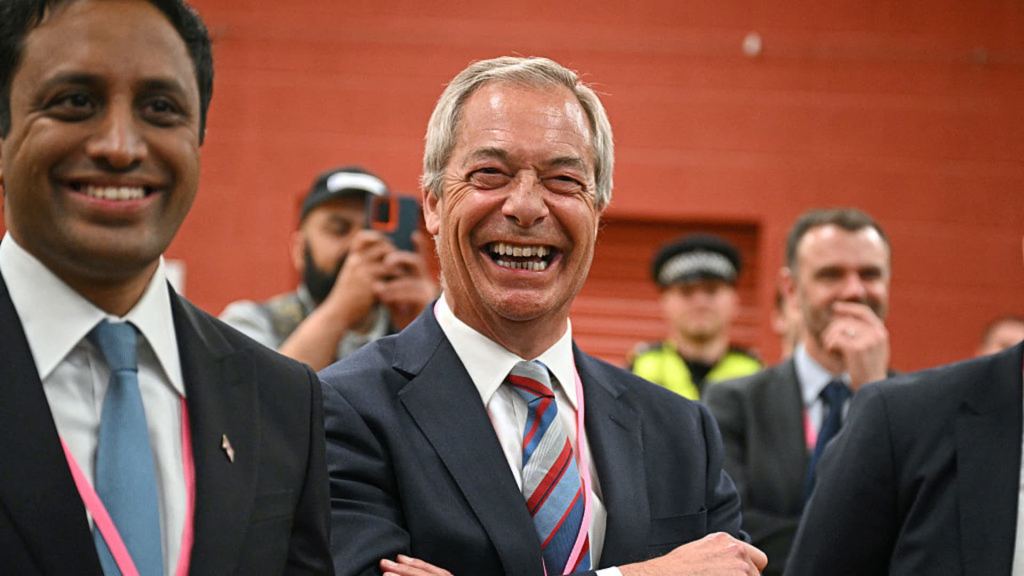The Reform UK party, led by prominent Brexit advocate Nigel Farage, has made significant strides in local elections across England, winning a parliamentary by-election with an unprecedentedly slim margin. This marks the party’s first major electoral challenge since last year’s general elections.
Farage’s Reform party aims to capitalize on its performance in the local elections announced on Friday, hoping it signals a potential shift away from Britain’s longstanding two-party system, traditionally dominated by the Labour Party and the Conservative Party.
In a closely monitored contest for the Runcorn and Helsby parliamentary seat, a full recount was necessitated due to the extremely narrow outcome.
Reform candidate Sarah Pochin narrowly secured victory against her Labour opponent, winning by a mere six votes. This result comes after Labour enjoyed a dominant majority of nearly 15,000 votes in the national election last summer.
The tight result in what was considered a stronghold for Labour highlights the ongoing fragmentation of Britain’s political scene since the recent general elections. Prime Minister Keir Starmer led Labour to one of the largest parliamentary majorities in British history last summer, but his administration has witnessed a rapid decline in public favor.
Starmer, a former lawyer, has faced backlash from voters due to tax increases, reduced benefits for pensioners, and controversy surrounding party donations. These issues have provided an opening for Farage, known for his close ties with former U.S. President Donald Trump.
On Thursday, voters participated in elections for over 1,600 local authority seats across England and engaged in six prominent mayoral contests.
The Runcorn and Helsby by-election was the only parliamentary seat available following the resignation of the previous Labour lawmaker, who stepped down after being convicted for assaulting a constituent.
Andrea Jenkyns, a former Conservative minister who lost her seat in the national election and later joined Reform, also achieved a notable victory, becoming the first mayor of Greater Lincolnshire. This position represents Reform’s most significant elected office to date, overseeing a constituency of around one million residents.
Moreover, Reform was close to unseating Labour in three additional contests in North Tyneside, the West of England, and Doncaster.


























